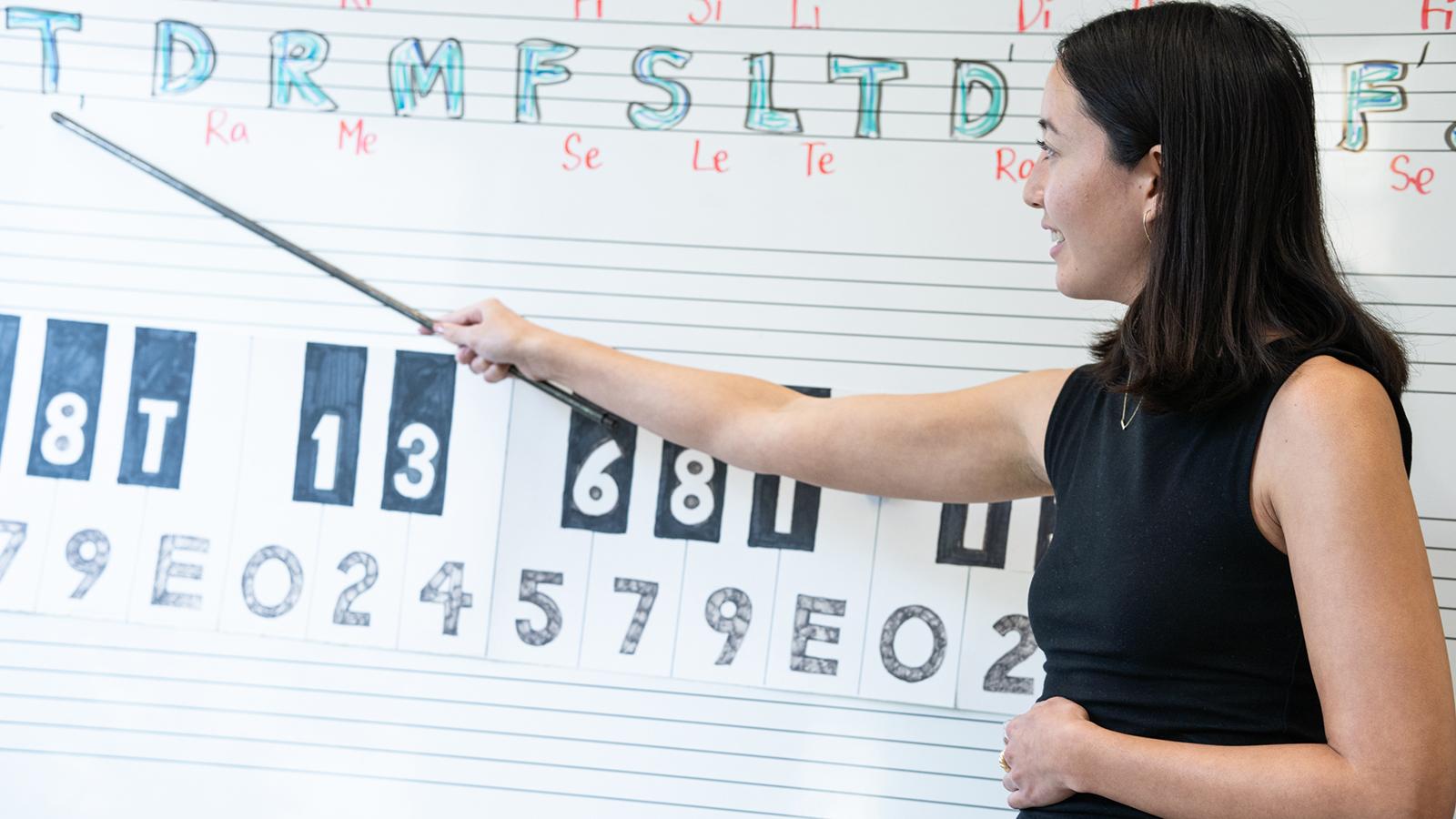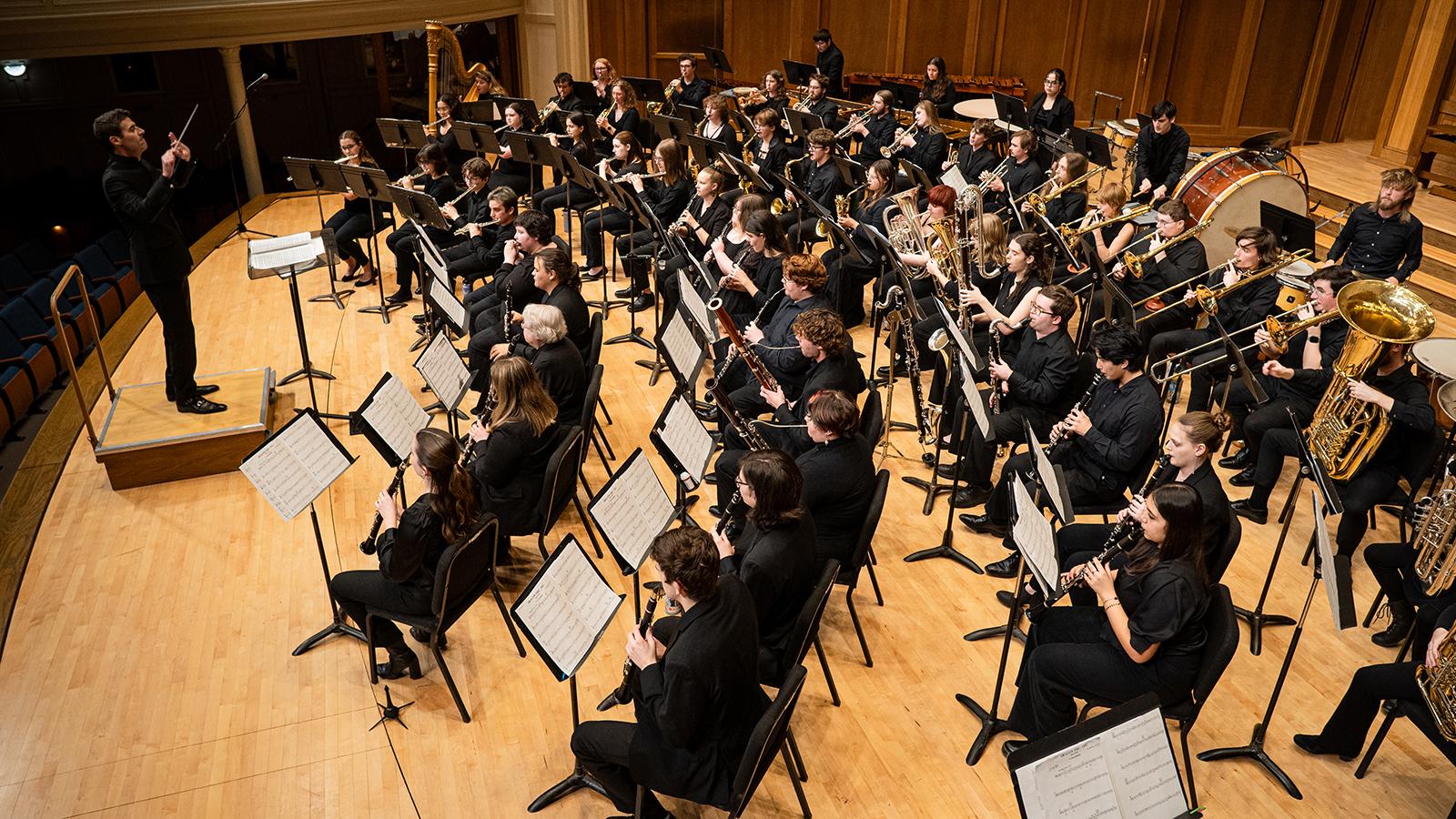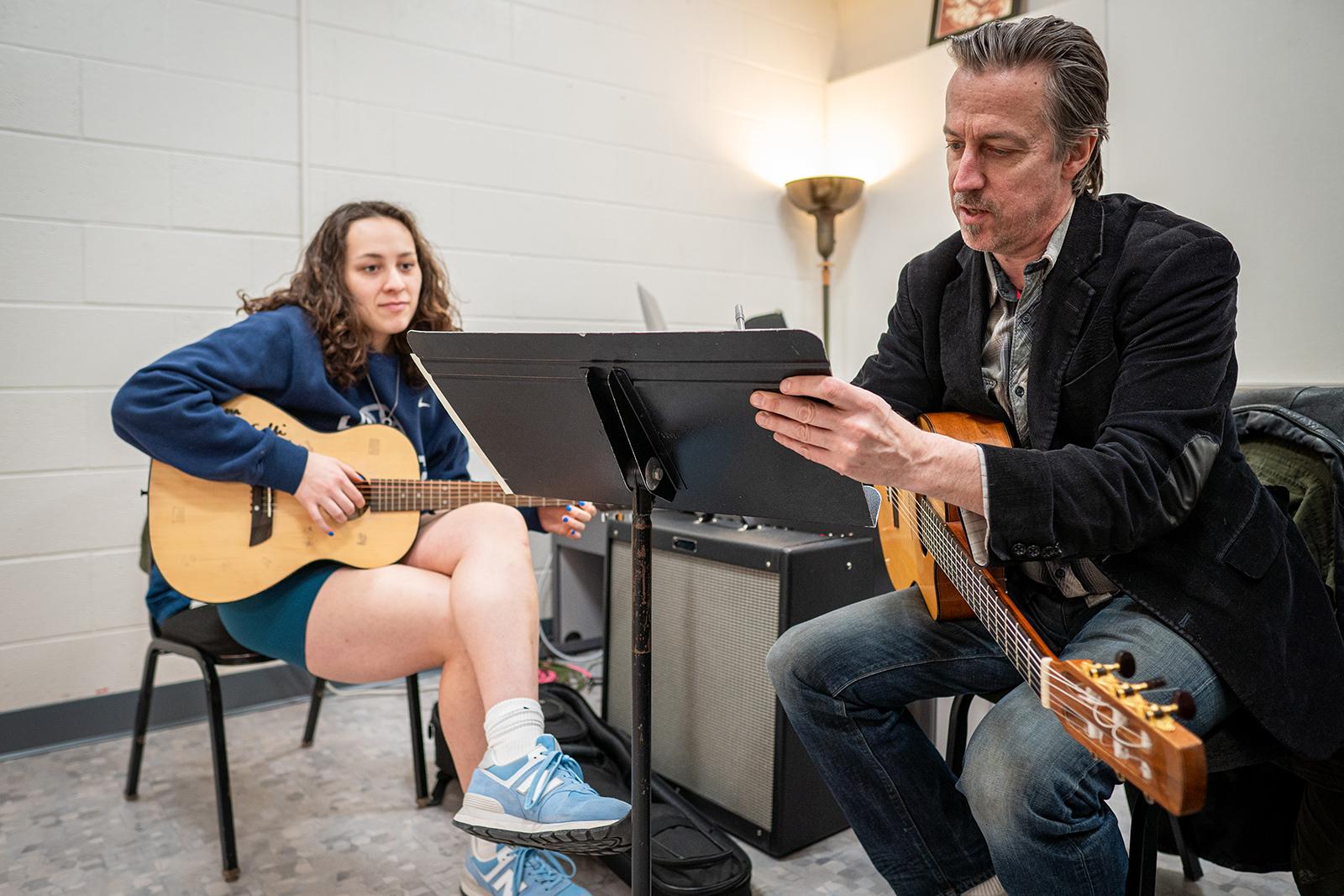Music Courses

Many Conservatory classes are open to students of all backgrounds—be that extensive musical training or simply a love of listening!
Look for courses in Musicology, Music Composition, Music Theory, Music Education and more that are open to all. These courses will change year to year so be sure to use the Course Catalog to help you plan.
Ensembles

Regardless of your major, you can join an ensemble at Lawrence and benefit from world-class conservatory training.
Private Music Instruction

Private instruction (Applied Music Individual Instruction) is offered to non-majors based on faculty availability. In most cases, interested students are able to participate in private instruction. A short interview or audition may be required for placement.
Group piano class and guitar lessons are also available.